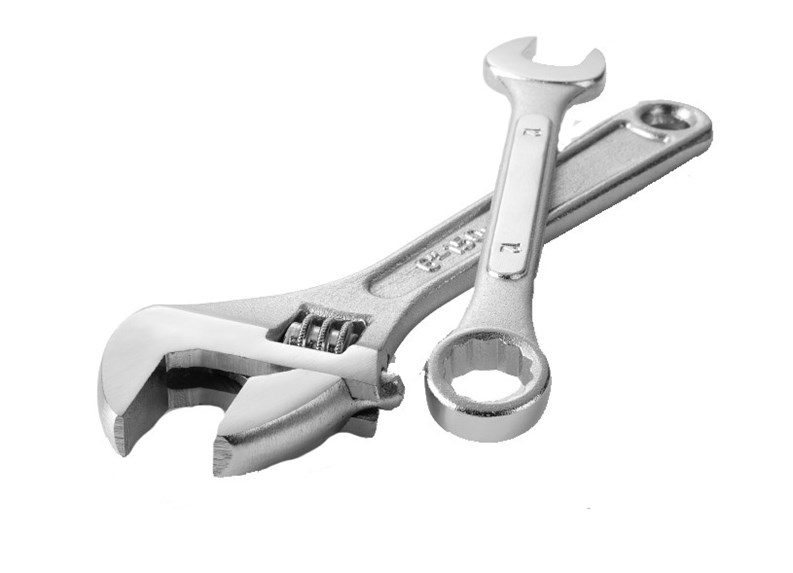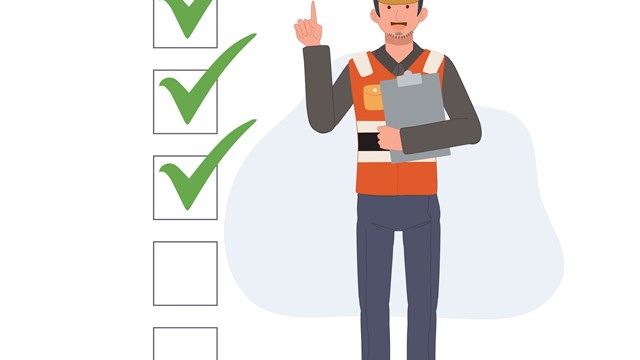It's the dead of winter. Outside the temperature is below freezing. Your building is sending up heat, and you've got
your windows open. What's going on? Why can't your building's heating system just make everyone comfortably warm instead of turning your apartment into an oven?
What's going on is that most boilers are controlled by the outside temperature. A simple reset timer mounted on the outside of your building reads the air temperature and, based on that reading, instructs the boiler to cycle on for a predetermined period of time. The heat starts coming up, and it gets warmer and warmer inside the building; but, of course, the temperature stays about the same outside. And because it's generally true that the lower the temperature outside, the longer the boiler runs, inside it gets warmer and warmer still, wasting fuel and making residents uncomfortably hot. And that's when the windows start to open.
The obvious solution is to somehow control the boiler's cycles based on the temperature inside the building. That's what indoor computerized heat sensors are all about. A number of unobtrusive heat sensing devices about the size of light switches are mounted on walls throughout the building, usually in residential units. These sensors feed temperature information to a main computer most often connected by wires to the boiler/burner system (although there are wireless systems). The main computer processes the information and, based on its readings, cycles on and off until the average temperature of the sensors reaches a preset comfort level. When that happens, the computer instructs the boiler to cycle off. The cycle repeats itself constantly, maintaining comfortable temperatures throughout the building.
Temperature Controls and More
We really give thermostatic control to the building, explains Herb Viertl, president of Optimum Applied Systems, Inc. (OAS), a Dobbs Ferry, New York-based installer/servicer of the Heat Computer, a heating control system. Viertl says that in buildings of between about 40 and 100 apartments, ten sensors are enough to establish the building's heating pattern for the computer that controls the boiler.
What's more, because the information the computer gets is stored in a log that can be accessed and printed out, whoever is responsible for making sure the heating system is operating properly (e.g., the superintendent or managing agent) can get a read-out of what's going on with the system. So if there's a significant aberration in the temperature readings provided by any of the sensors, that data is immediately available, providing valuable information about heat distribution imbalances, steam leaks and other problems that can result in resident complaints and abnormally high heating costs. Our control doesn't attempt to rebalance the building, which is a piping problem, says Viertl. What the computer does is monitor what's going on and give you a roadmap for where the problems are.
The Monitor 2000 system from U.S. Energy Controls in Flushing, New York functions in the same way. Before computers, it was hard to monitor the temperatures in ten different locations, says company president Jerry Pindus, who lays claim to developing the concept for the computerized heat monitoring system in 1978. Pindus' system uses as many as 30 indoor temperature senso ffb rs based on the logic that, the more information you can get, the better.
Both the OAS and U.S. Energy Controls systems offer more than just temperature control. The systems also monitor and report indoor and outdoor temperatures, boiler, domestic hot water and return line temperatures and burner flame failure. If there's a burner malfunction, if the domestic hot water temperature is too low or if the system is being manually by-passed, the systems automatically dial a preset telephone number and give a verbal or printed message of the condition.
They also generate written and verbal reports of current temperatures and the status of all monitored points, provide a record of all monitored temperatures at pre-set time intervals, provide a record of every burner on/off cycle, power failure and over-ride, and provide a daily record for total daily burner run time, oil and water consumption and corresponding high/low outside temperatures.
According to Viertl and Pindus, the systems work with any type of boiler/burner oil or gas system. Prices start at about $4,500 for the plain vanilla system and go up depending on the number of options and sensors a building chooses to install. Claims of fuel cost savings run from 15 percent to more than 30 percent, ostensibly paying back the cost of installation over the first two years or so.
Pro-Active Technology
The problem with thermostats or thermostatic type control is that it is reactionary, adds Vince Clerico, national sales manager for Heat-Timer Corporation located in Fairfield, New Jersey. Let's say there's a call for heat in a steam heated building, he explains. Depending on the size building it may take 15 minutes to make the steam and then another 15 to 30 minutes to distribute it into the building. During that time the building temperature continues to fall, although eventually the building warms up. Once the thermostat is satisfied, it turns off the boiler.
The problem, Clerico adds, is that you can't stop the heat once it's been generated. The system piping and radiators are still hot, even when the boiler is off, so you end up overshooting demand. This makes maintaining a consistent set point virtually impossible. And it wastes fuel. Tenants overheat and open their windows. Now you're paying good money to heat all of New York City! That's why we designed a control that anticipates the need for heat before it occurs, and turns the system off before a set point is reached.
Heat-Timer is now offering a new option on many of its models. The Remote Intercept (RI) takes computer-based boiler control a step further by allowing the user to communicate via computer and modem with his boiler system from any remote location. According to Clerico this option allows the user to monitor several conditions including water temperature, when the boiler needs to be cleaned, oil tank levels, water meter consumption and more.
Savings Realized
I promote this computerized system to my properties, says Jeffrey Gold, executive vice president of Brooklyn-based Marvin Gold Management Co., Inc. Not only does it help a building create and maintain a reasonable comfort level, but it also provides evidence that you're in compliance with the law in terms of when and how much heat you're providing, it lets you know if you're burning fuel efficiently, and it can help to prolong the life of the heating equipment by firing it only when it needs to be fired. What's more, Gold continues, installation of the system is J-51 eligible. And the dollar savings are absolutely actual.
The board at Berk Owners Corporation, a three-building, 288-unit co-op in Jackson Heights managed by Marvin Gold Management, is a case in point. Last winter the co-op gave the U.S. Energy Controls system a three-month trial in one of its buildings. We saved 1,000 gallons of oil over a six week period in the test building, says Claudia Harshfield, board secretary. Plus, the computer also did something else that was very important to us. Our steam pipes are under cement and the U.S. Energy c5e system told us we had a leak. We never would have known about it otherwise. The system has now been installed in the other two buildings, and according to Harshfield the property expects to save between 20 and 25 percent on oil costs because of it.
The Port Washington, New York-based management company Mark Greenberg Real Estate (MGRE) is now in the process of arranging for the installation in an 88-unit West Lawrence, New York co-op of a similar system manufactured by Brooklyn-based Microtherm, Inc. I've been doing research into this for a while, says MGRE director of management Steve Greenbaum. The system shows you the savings on a print-out. It's a simple system and not exorbitantly priced. If it can help my properties save ten percent on their fuel bills, it will pay for itself in the first couple of months.
Our goal, adds Viertl of OAS, is to help buildings save money. And, on the coldest day of the year, to get people to close their windows and be comfortable in their homes.
Ms. Dershowitz is a Contributing Editor for The Cooperator.







22 Comments
Leave a Comment